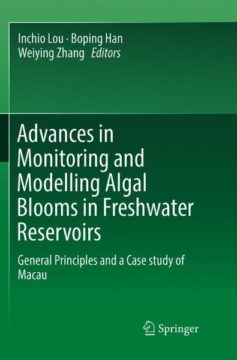This book describes essential principles of and approaches to monitoring and modeling algal blooms. Freshwater algal blooms have become a growing concern worldwide. They are caused by a high level of cyanobacteria, particularly Microcystis spp. and Cylindrospermopsis raciborskii, which can produce microcystin and cylindrospermopsin, respectively. Since long-term exposure to these cyanotoxins may affect public health, the reliable detection and quantification of these harmful algae species has become a priority in water quality management.
The book utilizes an advanced monitoring approach to identify and quantify cyanobacteria species and various cyanotoxin-producing genotypes. Further, it uses a modeling approach to forecast the occurrence of the phytoplankton that causes algal blooms in freshwater reservoirs, providing a comprehensive picture of currently available micro- and macro-techniques for studying the problem of algal blooms. As such, it offers a valuable guide for researchers, graduate students and professional engineers engaged in monitoring and modeling water quality in lakes and reservoirs.
Dr. InChio Lou is an Assistant Professor at University of Macau, Macau, China. Dr. Boping Han is a professor at Jinan Universtiy, Guangzhou, China. Weiying Zhang is a researcher of Environmental Engineering in the area of freshwater phytoplankton at University of Macau, Macau, China.
- Veröffentlicht am Freitag 29. Juni 2018 von Springer Netherland
- ISBN: 9789402414400
- 149 Seiten
